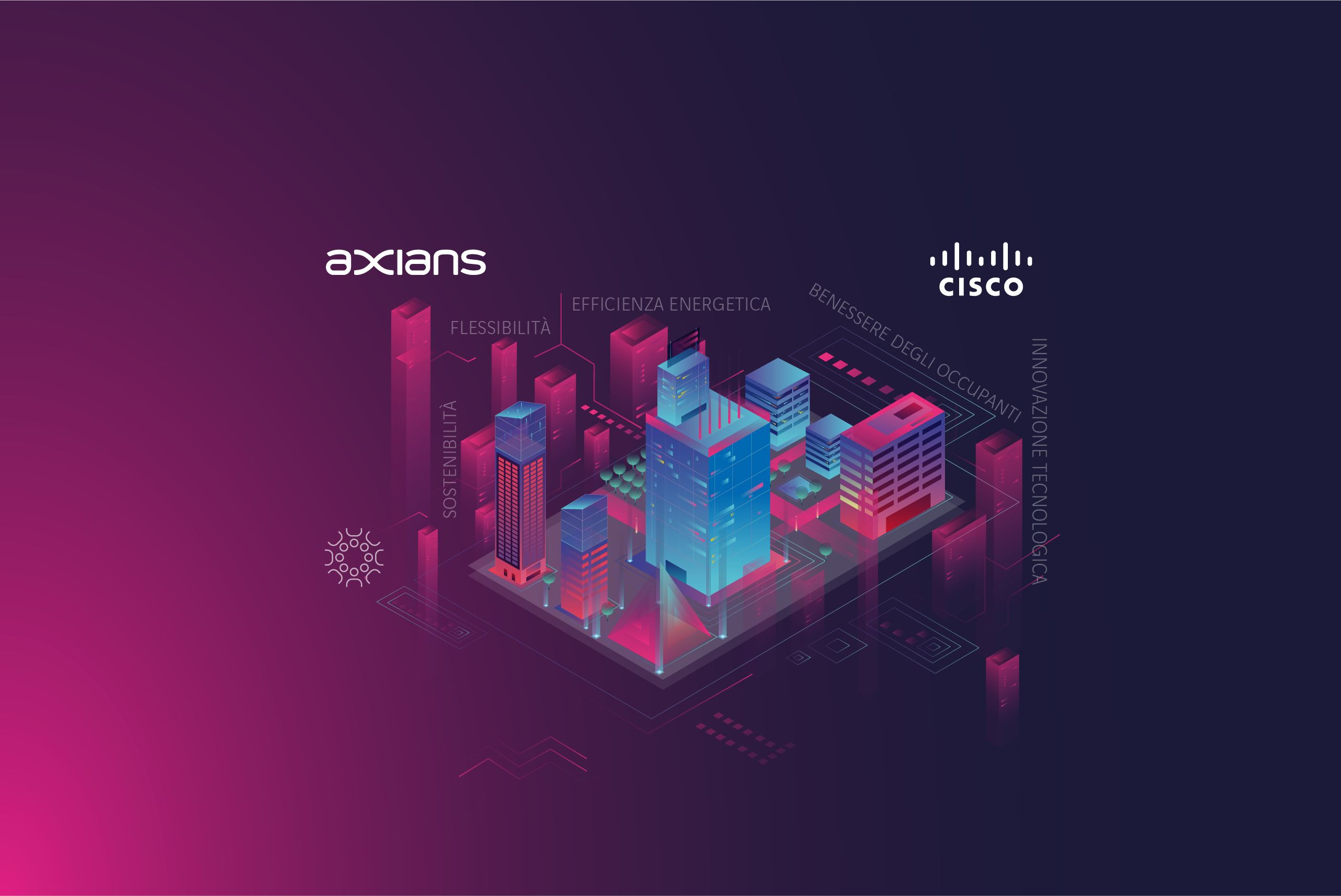The future of Real Estate rests on five pillars: environmental sustainability, technological innovation, occupant well-being, economic efficiency, and flexibility. In this context, system integrators and technology partners play a crucial role in innovating the sector by promoting smart, connected buildings — key elements for the development of smart cities.
Smart Cities Starting from the Construction Site
Cities, increasingly affected by climate change, are becoming the focal point of the ecological transition. Smart buildings and infrastructures integrate systems for environmental monitoring, energy management, air quality control, smart parking, and urban farming. These technologies improve quality of life while ensuring safety and well-being.
The smart vision begins right at the construction site: sensors, intelligent platforms, and artificial intelligence enable a safety-oriented approach by monitoring real-time conditions and behaviors. This allows designers, investors, and builders to adopt sustainable practices and adaptable solutions, increasing property value and enhancing occupant comfort.
Well-being and Safety with Technological Solutions and Integrated Systems
The concept of well living — understood as the ability of buildings to ensure physical, mental, and environmental well-being for their occupants — is realized through integrated systems and advanced sensors. AI platforms analyze environmental and operational data to optimize consumption and performance. Integration of systems enables centralized, simplified management with reduced operating costs.
Axians Italia, part of the VINCI Energies group, together with Cisco, showcased the latest technologies and design approach to building well-being at the “Camelot – Italy 2025 Projects” event, promoted by Quotidiano Immobiliare. The presentation highlighted how technological innovation, through integrated and intelligent solutions, concretely improves quality of life by offering scalable systems ready to face the future challenges of the real estate sector.


